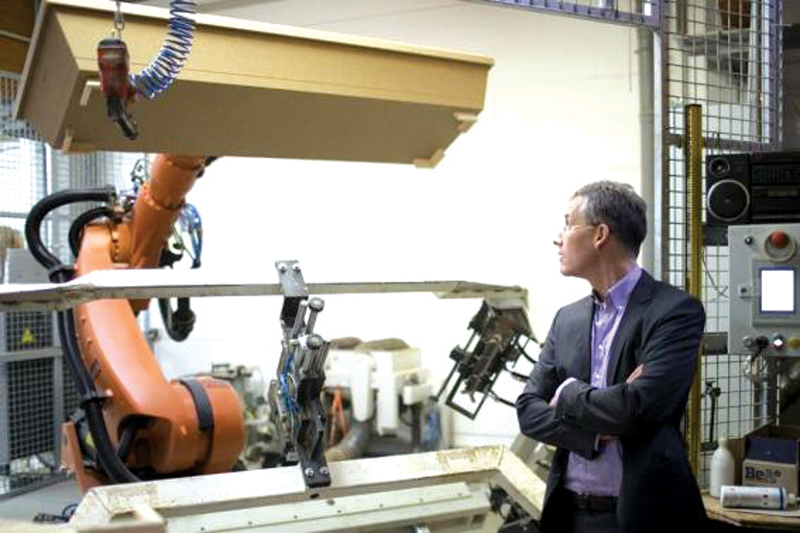
One in three Europeans will be 65 or over by 2060. They are not just living longer, but are also staying more active and independent, only to find a dearth of products to fit their different lifestyles.
After her ‘fiercely independent’ mother became malnourished because she could not cook or chew the products in her well-stocked larder, Elizabeth Jones realised there was a need for meals in small but nutritious portions that are easy to open, heat and eat.
She now sells 2,000 a week in Co-op supermarkets, mostly ‘meat, potatoes and gravy’ fare - avoiding things like rice that can get snagged in dentures - and fruit-based desserts.
“If you look at the statistics, the percentage increase here over next 20-30 years is far greater than any other demographic in the market,” said Jones, founder of On the Menu, a British firm making meals for elderly people living at home.
“Life expectancy is rising and we have customers driving to the Co-op who are 95,” said Jones. “So the barrier of old age is being pushed back.”

Companies are also too often squeamish about appealing directly to older people because they’re still thinking of the over-65s as limited and not ‘coo’” - overlooking the potential of a still-vibrant demographic that has money to spend.
Christa Hoehs, who runs a ‘senior’ modeling agency in Munich with models as old as 87 on its books, said that beyond what she cheerfully calls the ‘ailment sector’ - for rheumatism relief and the like - many advertisers worry that elderly models will detract from the image of the products they promote.
While banking, insurance and even car adverts sometimes use silver-haired models, these are rarely over 60, she said.
But in fact, “We are seeing disability and frailty particularly among middle-class, educated professionals being pushed back to their 70s,” says Sarah Harper of the Oxford Institute of Population Ageing, adding that these same people have significant spending power as many of them free up assets and downsize homes.
One obvious beneficiary of the aging process would seem to be funerals. But in fact the industry - worth over 5.1 billion euros a year in Europe, according to industry estimates - is suffering as the rising numbers of customers push down prices and people rethink their final ceremony.
Rolf Lichtner of the European Federation of Funeral Services said there was a trend toward cremation instead of burial, with more people having their ashes scattered in the wild.
Others are increasingly buying their own funerals in advance because “people think they shouldn’t be a burden on their relatives”, said Lichtner.
At Berlin’s only coffin maker Lignotec, winter will as usual be peak season and employees know better than to ask for time off around January.
Published in The Express Tribune, December 5th, 2014.
Like Life & Style on Facebook, follow @ETLifeandStyle on Twitter for the latest in fashion, gossip and entertainment.
1732503274-0/Untitled-design-(43)1732503274-0-405x300.webp)
1732501636-0/Untitled-design-(42)1732501636-0-165x106.webp)

1732498967-0/Outer-Banks--(1)1732498967-0-165x106.webp)
1732086766-0/BeFunky-collage-(74)1732086766-0-165x106.webp)












COMMENTS
Comments are moderated and generally will be posted if they are on-topic and not abusive.
For more information, please see our Comments FAQ